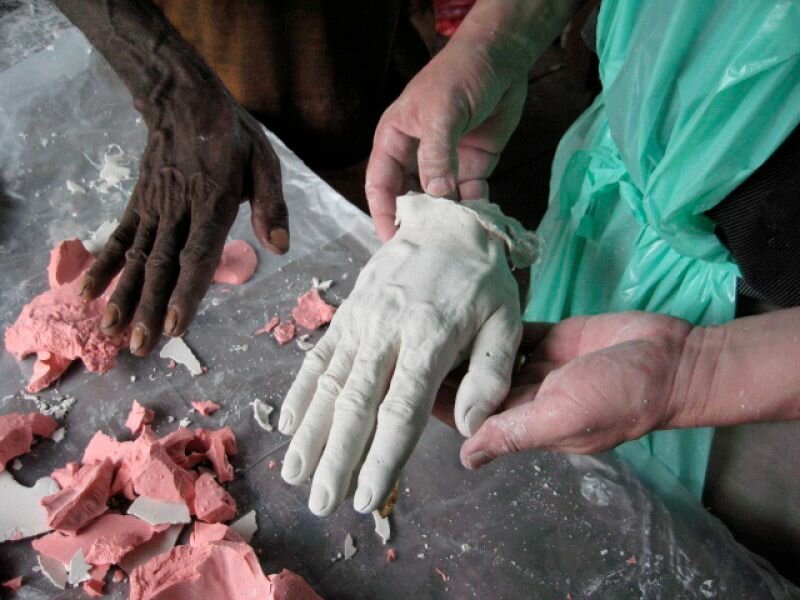
Papuans love to smoke. To make your stay among them as smooth as possible, it’s well advised to take with you a considerable amount of tobacco. I’ve never seen smokers make trouble. I offer Barnabas Betakam a pack of Lampion Lilin rolling tobacco for our shared peace pipe. To my surprise, he declines, stating that all he smokes are Surya or Gudang Garan filter cigarettes. I’m amazed at his ability to afford his expensive addiction, but he’s apparently willing to abstain from his favourite stimulant for the sake of pride. In his eyes, smoking filter cigarettes is a sign of upward mobility.
Betakam is witness to a booming economy. Among the Indonesians, who since the takeover in 1962 have been residing in areas traditionally exclusively inhabited by Papuans, the amount of motorboats owned per capita is increasing daily. These units are the best expression of the difference between the transmigrates from the overpopulated Indonesian archipelago and the Asmat, indigenous inhabitants of the tropical rainforest of the delta swamp in the former Dutch New Guinea. Yamaha outboard motors versus oars, generators and electric light versus wood-fuelled fires, half burned candles and darkness; colourful television programmes and song and dance to tunes played on home-made ukuleles and guitars strung with fishing line thread.


The Dutch pastor Gerard Zegward was the first white man to enter the region that was to be pacified in 1953. He arrived all alone and there's no doubt that he made quite an impression. It's probably because he wasn't part of their familiar societal systems of headhunters and tribal wars that the Asmat must assumed him to be invincible. In fact, they initially believed him to be immortal. In his unpublished memoirs, Gerard writes: “While I was in Sawa, I wanted to retreat to do a number two. But I was accompanied by a group of thirty men. They held my hand to keep me from falling into the blubber and shouted in unison: ‘Be careful, don’t slip.’ Sticks were laid out for me to stand on. A few men dug a small hole for me to expel my excrements into. In full view, I did my deed and was promptly offered a handful of leaves as a substitute for toilet paper. I didn’t turn to look back, but I’m quite sure that they studied my faeces profusely’. Having understood Zegwaard to be a reincarnation of their ancestors, the above study must have led to some confusion.



